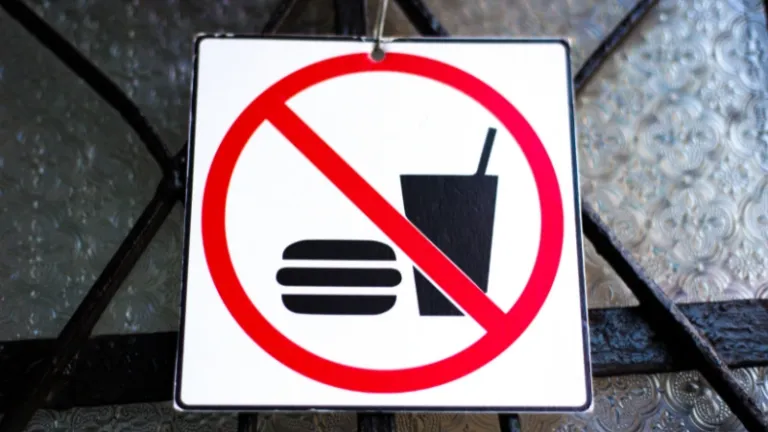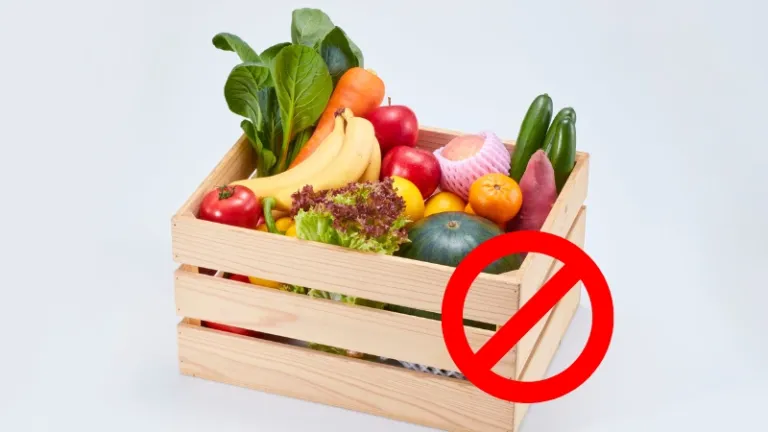Kowloon offers halal‑certified options for every craving Muslim travellers!
Travel Guide to Japan for Muslim Traveler: List of Items You Cannot Bring into Japan

Who here likes to pack Asian food when traveling abroad because you're worried you won’t like the local food? Be careful if you're heading to Japan — this country has very strict rules about what you can and cannot bring in, especially when it comes to food.
Also read: Where to Find Halal Food & Prayer Rooms at Haneda Airport, Tokyo
Recently, a video went viral showing an Indonesian muslim traveler at Haneda Airport, Tokyo whose luggage was opened by airport officers. Inside her suitcase were many types of Indonesian food — from meat and vegetables to cooking spices. The officers carefully checked and removed the items for inspection.
This is actually not unusual. Japan has strict quarantine laws to protect its agriculture and livestock from diseases and pests that could come from abroad. To avoid trouble at customs, here’s a full guide to help you understand what you cannot bring into Japan.
Why Japan Has Strict Import Rules

Japan takes food and agricultural safety very seriously. The government enforces strong regulations to prevent the entry of plant pests, animal diseases, and harmful bacteria from other countries.
Even if your food is only for personal use, it can still pose a risk. Some viruses or insects can travel on fruits, vegetables, or meat — and once they spread, they can damage Japan’s farms and environment.
Food Items That Are Not Allowed

Most meat and animal-based products are prohibited, whether they are raw, cooked, frozen, or packed in airtight containers.
Prohibited animal products include:
Meat from cows, pigs, goats, sheep, and deer
Poultry such as chicken, duck, goose, turkey, and quail
Processed meat like jerky, ham, sausage, bacon, rendang, and meat sandwiches
Raw eggs (including eggs with shells)
Animal parts such as intestines, blood, skin, or bones
Raw milk and unprocessed dairy products
Animal feed, straw, and hay
Leftover airplane food containing meat
Tip:
If you buy a hamburger or sandwich before your flight, finish it before landing in Japan! Any leftover meat-based food can be confiscated at customs.
Exception:
You may bring cheese for personal use, as long as it’s processed and weighs less than 10 kg.
Also, certain animal products may be allowed if you have an official health certificate from your home country’s government agency.
Fruits and Vegetables

Almost all fresh fruits and vegetables are not allowed into Japan without inspection or certification. Even airplane meals that contain raw fruits or vegetables must be finished before leaving the aircraft.
Examples of prohibited fruits and vegetables:
Mango
Longan
Guava
Lychee
Chili peppers
Citrus fruits (like oranges)
Apples
Pears
If you bring seeds, seedlings, or plant cuttings, you must also have a Phytosanitary Certificate issued by your country’s government.
In addition, soil and live insects are strictly forbidden.
The main reason is to prevent harmful pests like fruit flies and plant diseases from entering Japan.
Other Items That Require Attention

Japan also regulates several non-food items. Here’s what travelers should be aware of:
Cash
You can bring cash into Japan, but if the amount is over 1 million yen (around USD 10,000 or IDR 100 million), you must declare it to customs.
Failure to do so may result in the money being confiscated or penalties imposed.
Gold
Small jewelry items are fine, but bringing over 1 kilogram of gold must be declared.
Japan has enforced strict tax regulations on undeclared gold since 2017 to prevent smuggling.
Tobacco
Duty-free limits:
200 cigarettes, or
50 cigars, or
250 grams of loose tobacco.
Bringing more than this requires declaration and may incur import duty.
Completely Prohibited Items
These items are not allowed under any circumstances:
Illegal drugs (heroin, cocaine, cannabis, MDMA, etc.)
Firearms, ammunition, and explosives
Fake money, counterfeit credit cards, or forged documents
Obscene or immoral materials (e.g., pornography)
Items violating intellectual property rights such as counterfeit goods
How to Declare Items and Pay Customs Duty
When you arrive in Japan, you will be given a Customs Declaration Form at the airport. If you are carrying cash, valuable items, or goods over the allowed limit, write them clearly on the form.
Customs officers may inspect your luggage to confirm your declaration. If you need to pay import duties, you can do so at the customs counter — note that some counters only accept Japanese yen cash, not credit cards.
Tips Before Flying to Japan
Check Japan Customs’ official website before you travel for the latest rules.
Finish your in-flight meals — don’t bring leftovers out of the plane.
Avoid carrying raw meat, fruit, or vegetables, even in small amounts.
Be honest when declaring your items — Japan values honesty and cooperation.
If you’ve recently visited a farm or had contact with livestock, report it at the animal quarantine counter in the airport.
Also read: Where to Eat Halal & Prayer Room at Tokyo Narita Airport
Don’t Get in Trouble Because of Your Luggage!
Most items that are restricted or banned in Japan are related to health, safety, and law enforcement.
So, always double-check your belongings before departure to avoid unnecessary problems.
With the right preparation and understanding of Japan’s import rules, your trip will be smooth, safe, and stress-free.
Published at
About Author
Subscribe our Newsletter
Get our weekly tips and travel news!
Recommended Articles
15 Best Halal Foods in Kowloon, Hong Kong 10 Best Halal Restaurants in Pattaya Serving Authentic Thai Cuisine Let's try Halal Authentic Thai Cuisine in Pattaya
10 Best Hotels in PIK Jakarta for a Fun Family Staycation: Strategic & Stylish perfect destination for a quick weekend escape or a fun-filled family staycation
10 Best Hotels Near Goyang Stadium: A Guide for K-Pop Fans Heading to South Korea! Traveling abroad just to see your favorite idol perform is the ultimate fan goal
The 10 Best Indonesian Restaurants in Mecca and Madinah for Hajj and Umrah Pilgrims comforting flavor of Nusantara cuisine while Umrah
Latest Articles
Mt. Fuji’s Iconic Cherry Blossom Festival Canceled for 2026: Essential Updates for Travelers Overtourism and tourists misconduct are the reasons behind this decision.
Seoul’s Majestic Palaces Open Their Gates for Free This Mid-February Plan your budget-friendly trip now!
9 Most Instagrammable Cherry Blossom Spots in Jeju: Your 2026 Spring Guide Ready to experience Jeju’s spring in full bloom?
Best Places to Stay in Kyoto 2026 : 10 Best Ryokan Hotels with Traditional Japanese Style the ultimate way to feel Kyoto’s old-world charm
Taiwan Cherry Blossom Guide 2026: Top 10 Spots, Forecast, & Hot Springs cherry blossom season is back!

